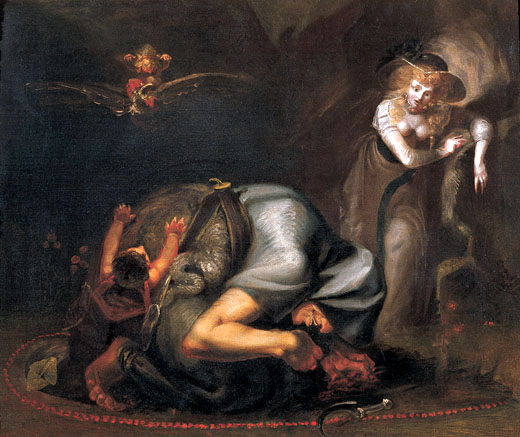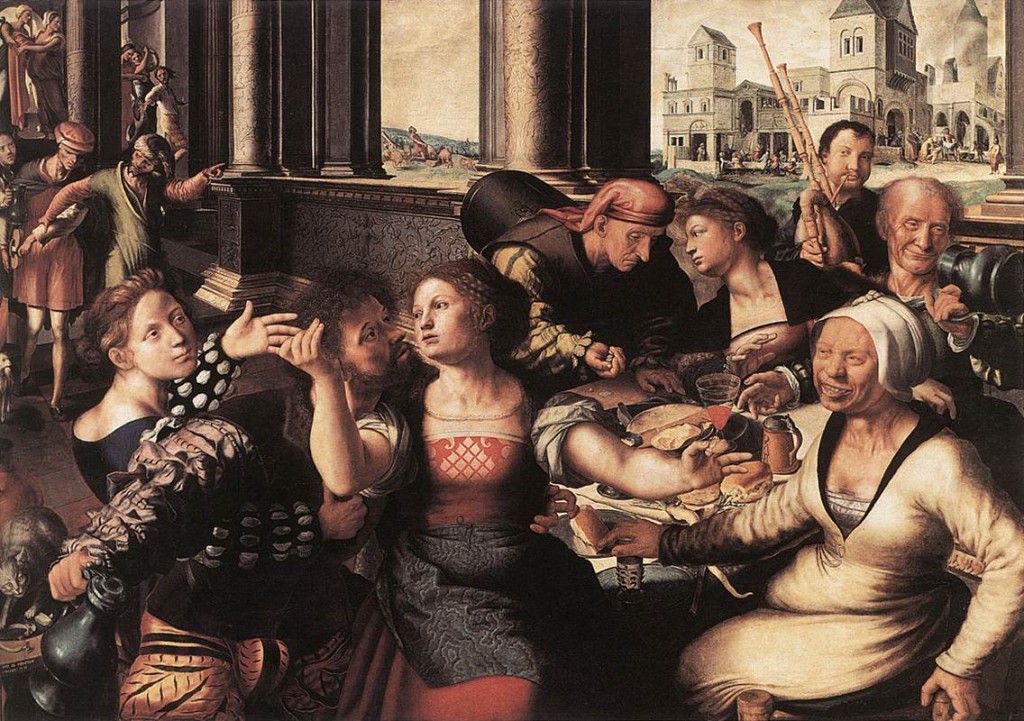What entered god’s mind when he put the serpent into the Garden of Eden, only he knows, and by now he may well have regretted it, had second thoughts, or perhaps forgot. In any event, it’s too late. But since then, the existence of villainy, evil, in this world ostensibly under divine supervision, is a question which has long troubled humankind…
The Devil, I safely can aver,
Has neither hoof, nor tail, nor sting;
Nor is he, as some sages swear,
A spirit, neither here nor there,
In nothing—yet in everything.
He is—what we are; for sometimes
The Devil is a gentleman;
At others a bard bartering rhymes
For sack; a statesman spinning crimes;
A swindler, living as he can;
A thief, who cometh in the night,
With whole boots and net pantaloons,
Like some one whom it were not right
To mention;—or the luckless wight
From whom he steals nine silver spoons. ( Percy Bysshe Shelley, Peter Bell The Third, 1819 )
…A common misconception is what is sourced as an Asharite theory of providence. Here, nothing in the universe is due to chance. Instead, all is brought about by the will of god. That is, Providence thus extends to each and every element in nature, form the due justice of a sinner to a trout wiggling off a hook. This account is not acceptable; divine law is rendered useless, as there is no free will: no freedom to do or refrain from doing what the law commands, while making a farace of divine justice. An improvement on this was the view that divine providence does indeed survey all things, but the individual retains freedom in his action. And, God is responsible for doling out rewards and punishments to all beings not by sheer acts of will but through benevolent wisdom and justice. This view can be objected, refuted, on the basis of it being absurd to extend, to meddle with divine justice beyond the sphere of human agency. Again, Just as the groupies of this view say that when an innocent person suffers, divine justice will provide them with a compensatory reward in the world-to-come, so, appealingly to animal activists, they must say, logically, that when a particular animal is killed it was better for it to be so and it will receive a reward in the hereafter. If a mouse which has not sinned is eaten by a wild pig, His wisdom has required this with regard to the mouse and the mouse will compensation in the other world. Like the woman accused of being a witch and heretic being led to a burning stake and the accompanying priest reprimanding her for walking on an ant, “you should pay attention to hurting other living creatures.”…
This is an excerpt from James Hogg’s story of fratricide and diabolical possession: two women discuss Wringham and his old associate Gil-Martin- the devil himself- who has egged Wringham on to murder and other crimes:
“I never in my life saw any human being,” said Mrs. Calvert, “whom I thought so like a fiend. If a demon could inherit flesh and blood, that youth is precisely such a being as I could conceive that demon to be. The depth and the malignity of his eye is hideous. His breath is like the airs from a charnel house, and his flesh seems fading from his bones, as if the worm that never dies were gnawing it away already.”
“He was always repulsive, and every way repulsive,” said the other, “but he is now indeed altered greatly to the worse. While we were hand-fasting him, I felt his body to be feeble and emaciated; but yet I know him to be so puffed up with spiritual pride that I believe he weens every one of his actions justified before God, and, instead of having stings of conscience for these, he takes great merit to himself in having effected them. Still my thoughts are less about him than the extraordinary being who accompanies him. He does everything with so much ease and indifference, so much velocity and effect, that all bespeak him an adept in wickedness. The likeness to my late hapless young master is so striking that I can hardly believe it to be a chance model; and I think he imitates him in everything, for some purpose or some effect on his sinful associate. Do you know that he is so like in every lineament, look, and gesture, that, against the clearest light of reason, I cannot in my mind separate the one from the other, and have a certain indefinable expression on my mind that they are one and the same being, or that the one was a prototype of the other.”
“If there is an earthly crime,” said Mrs. Calvert, “for the due punishment of which the Almighty may be supposed to subvert the order of nature, it is fratricide. But tell me, dear friend, did you remark to what the subtile and hellish villain was endeavouring to prompt the assassin?”
“
I could not comprehend it. My senses were altogether so bewildered that I thought they had combined to deceive me, and I gave them no credit.”
“Then bear me: I am almost certain he was using every persuasion to induce him to make away with his mother; and I likewise conceive that I heard the incendiary give his consent!”
“This is dreadful. Let us speak and think no more about it, till we see the issue. In the meantime, let us do that which is our bounden duty—go and divulge all that we know relating to this foul murder.” ( James Hogg, Confessions of a Justified Sinner, 1824)










 COMMENTS
COMMENTS



